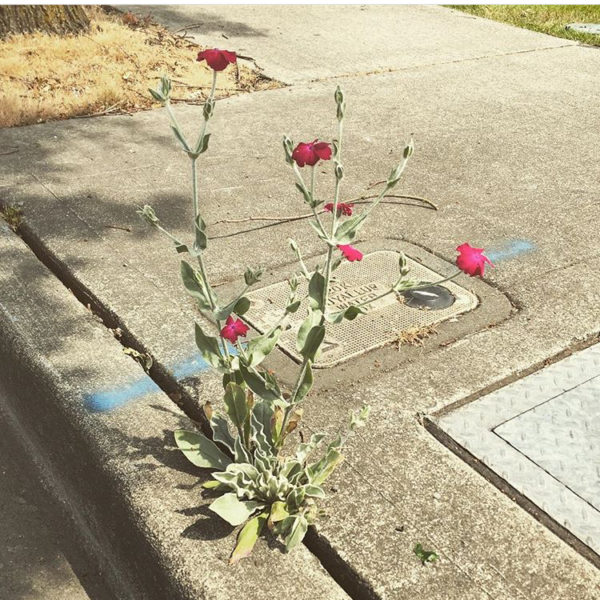
Message for the Sixth Sunday after Pentecost, Year A (7/12/2020)
Matthew 13:1-9, 18-23
Three-fourths of the seed won’t make it.
That’s a valid way to read the famous parable in our Gospel from Matthew today. Three-fourths of the seed will yield nothing, meaning that three-fourths of the sower’s investment and labor will go to waste. If you knew that you only had a twenty-five-percent chance of success, would you keep sowing?
In a first-century agrarian economy, you wouldn’t likely have any choice. As Warren Carter explains:
“The [Parable of the Seeds and Soils] evokes a common scene of a male peasant trying to eke out a living in generally inhospitable conditions…. [In addition to the poor ground] are other [unmentioned] obstacles: rent, tithes, taxes and tolls, seed for the next year, a household to support. Crop failure meant borrowed money; indebtedness meant defaulting on the loan, loss of land, and virtual slavery as a laborer.”[1]
For the majority of farmers in Jesus’ time, the circumstances are dire and the barriers to success are daunting. But success is imperative; sowing and reaping are matters of life and death.
Interpreters of this parable have often focused on the four different types of soil, which is reasonable given the allegorical explanation in verses 18-23: different soils represent different responses to the word of God. The evil one and persecution and worldly cares and the lure of wealth prevent people from receiving the word, nurturing it in their hearts, and bearing fruit for God’s harvest, the reign of heaven on Earth. Accordingly, this interpretation invites the listener to ask, “What kind of soil am I?”[2]
But, the latter half of today’s Gospel is probably an addition to the original teaching of Jesus by the early church, and thus one of many possible readings of the story in verses 1-9.[3] If Jesus’ parable is primarily an exhortation to “be good soil,” then he’s awfully cynical about our prospects, isn’t he? Three-fourths of his efforts will be for naught because three-fourths of his listeners will reject the message for one reason or another. Christ sows the word unsparingly, but apparently he has no illusions about the rate of failure.
Is Jesus being cynical, you might ask, or simply realistic? After all, his teachings in Matthew chapter 13 “follow nine chapters of ministry, which has often met with rejection, hostility, and unbelief.”[4] The twenty-five-percent chance of success is a grim estimate, but it’s consistent with Jesus’ own experience.
Isn’t that the case with the promise of God’s reign in every age? Disciples in every generation envision the world as God intends it to be, a world of shared abundance where grace and life are strong enough to overcome suffering and death. But in every generation, suffering and death seem to maintain their chokehold. Evil and oppression and distraction and greed are everywhere apparent. “Do not underestimate any of these killers,” warns Matt Skinner. “They do not yield ground without a fight. They make the work hard.”[5] In fact, they may make the work seem impossible, and the reign of heaven nothing more than a pious delusion.
But, if Jesus’ parable is realistic about the setbacks, it’s also confident of the final outcome: “Other seeds fell on good soil and brought forth grain, some a hundredfold, some sixty, some thirty. Let anyone with ears listen!” It’s not just that twenty-five-percent of seeds produce grain, it’s that they produce a bounty. A hundredfold return is prolific, a farmer’s dream. It’s the kind of yield that could change a peasant’s life and the life of his community. In this way, the parable ends with a thrill of hope, anticipating “the final establishment of God’s just reign,” to quote Carter again, “which will provide abundant resources for all and will destroy the cycle of poverty.”[6] Success is imperative; sowing and reaping are matters of life and death.
It’s been called the Parable of the Sower, the Parable of the Seeds, the Parable of the Soils; maybe it should be called the Parable of the Extraordinary Harvest.[7] In spite of serious impediments, Jesus affirms, God’s word of life will find a way to thrive. This promise mitigates against hopelessness in seemingly hopeless circumstances. We shouldn’t be surprised by resistance to God’s dream for life on Earth, but neither should we be immobilized. The work has always involved struggle and loss; still, it’s liable to succeed. As the late author and teacher Bebe Moore Campbell puts it, “The God I serve told me to expect the best, that there is enough for everybody.”[8]
And, who knows where and when that seed will take root and grow? The good soil isn’t always plainly visible, so life flourishes in unexpected ways. Renowned hip hop artist Tupac Shakur was less known for his written poetry, but one poem in particular speaks deeply to this very hope:
[“The Rose that Grew from Concrete”]
Let anyone with ears listen. The chances of success are slim, still God sows the promise of abundant life more widely than any of us can imagine. The toil is hard, and the disappointments are many. But, since there’s no scarcity of seeds, there’s no end to our hope for the harvest.
[1] Warren Carter, Matthew and the Margins, 282.
[2] M. Eugene Boring, The New Interpreter’s Bible, Vol. VIII, 303.
[3] Ibid. 305.
[4] Carter 284.
[5] “At Work in the Fields of the Lord,” https://www.workingpreacher.org/craft.aspx?m=4377&post=5442.
[6] 283.
[7] See Talitha J. Arnold, in Feasting on the Word, Year A, Vol. 3, 236.
[8] Ibid. 240.
[9] “The Rose that Grew from Concrete.”

